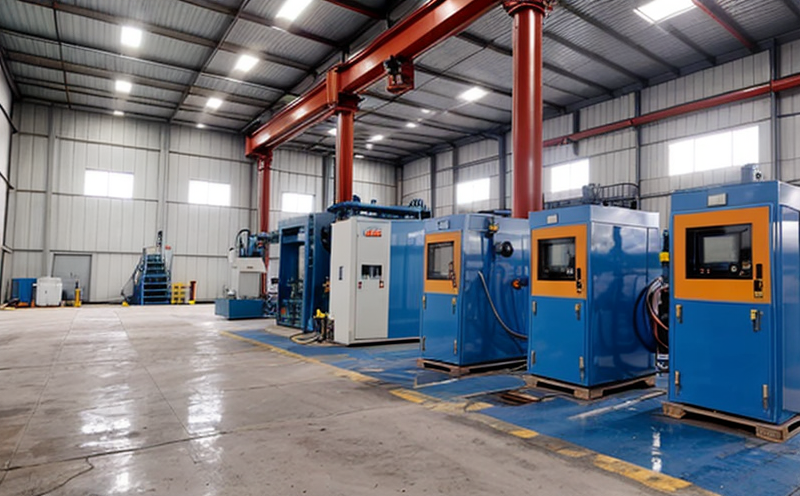BS EN 14066 Chemical Analysis of Industrial Minerals Testing
The British Standard and European Norm (BS EN) 14066 specifies the chemical analysis methods for industrial minerals. This standard is essential for industries dealing with raw materials such as limestone, chalk, dolomite, and other carbonate-based minerals used in construction, agriculture, and manufacturing.
The BS EN 14066 framework provides a robust methodology to ensure consistent and accurate determination of key chemical parameters including calcium oxide (CaO), magnesium oxide (MgO), carbon dioxide (CO2) content, and loss on ignition. These analyses are critical for quality control in the production processes of industrial minerals.
The testing protocol outlined in BS EN 14066 is designed to be precise and reproducible, ensuring that the chemical composition of raw materials meets specified requirements. This consistency is vital for the downstream processing steps such as milling, blending, or hydration reactions. For instance, the correct CaO content ensures efficient hydration in cement production.
The BS EN 14066 standard also covers the preparation and handling of samples to ensure they are representative of the bulk material. Sample preparation involves crushing, splitting, and drying procedures that minimize errors due to sample heterogeneity. Once prepared, samples undergo chemical analysis using various instruments like atomic absorption spectrophotometry (AAS), gravimetric methods, or near-infrared spectroscopy.
Compliance with BS EN 14066 is not only about meeting industry standards but also ensuring environmental sustainability and product consistency. By adhering to this standard, manufacturers can ensure that their products meet the quality expectations of customers worldwide. This is particularly important in global markets where supply chains are complex, and regulatory compliance varies between countries.
The standard's flexibility allows for adjustments based on specific industrial needs, such as varying levels of impurities or desired purity ranges. This adaptability ensures that the chemical analysis aligns with the unique demands of each industrial sector, from construction materials to agricultural amendments.
Moreover, BS EN 14066 is recognized internationally and is often a prerequisite for exports to European Union countries and other regions adhering to EU directives. This recognition underscores its importance in global trade and supply chains.
Industry Applications
The BS EN 14066 chemical analysis of industrial minerals is widely used across various sectors, including construction materials, agriculture, and manufacturing. In the construction industry, accurate CaO content in limestone is crucial for cement production to ensure durability and strength.
- Construction Materials: Ensuring consistent quality in raw materials like limestone, chalk, and dolomite.
- Agriculture: Testing agricultural amendments such as lime or dolomitic limestone for pH adjustment and nutrient content.
- Manufacturing: Quality control in the production of industrial chemicals and construction products using carbonate-based minerals.
The BS EN 14066 standard is particularly beneficial in industries where raw material consistency directly impacts product quality. For example, variations in CaO content can lead to significant differences in the performance of cement or lime-based products.
Furthermore, compliance with this standard ensures that industrial minerals meet international standards and are suitable for global markets. This is especially important for companies involved in international trade, where regulatory compliance can be a significant hurdle.
Quality and Reliability Assurance
The BS EN 14066 standard plays a crucial role in maintaining the quality and reliability of industrial minerals. By providing standardized procedures for chemical analysis, it ensures that all testing is conducted consistently across different laboratories.
Consistent sample preparation techniques are essential to obtain reliable results. This includes precise crushing, splitting, and drying methods that ensure the sample represents the bulk material accurately. The use of calibrated instruments like atomic absorption spectrophotometers (AAS) and gravimetric analysis ensures accuracy and precision in determining key chemical parameters.
The standard also emphasizes the importance of traceability in testing processes. This means that every step of the analytical process is documented, allowing for reproducibility and audit trails. Traceability enhances confidence in the results and facilitates compliance with regulatory requirements.
Regular calibration of instruments and proficiency training for analysts further contribute to maintaining high-quality standards. These measures ensure that all test results are accurate and reliable, thereby supporting quality assurance practices within industrial operations.
The standard's focus on traceability and reproducibility is particularly beneficial in industries where material consistency directly impacts product performance. For example, variations in CaO content can significantly affect the durability of cement or lime-based products used in construction.
International Acceptance and Recognition
- European Union Compliance: BS EN 14066 is widely accepted within the EU, where it is often a prerequisite for exporting industrial minerals to member states.
- Global Standards: The standard aligns with international standards such as ASTM and ISO, ensuring compatibility across different regions.
- Supply Chain Efficiency: Compliance helps streamline supply chains by eliminating the need for multiple certifications in countries adhering to EU directives.
- Quality Assurance: International recognition ensures that industrial minerals meet global quality standards, enhancing customer confidence and trust.
The standard's widespread acceptance is a testament to its robustness and reliability. By ensuring that chemical analysis of industrial minerals meets international standards, BS EN 14066 supports the global trade in these materials and fosters confidence among buyers and sellers alike.
Compliance with this standard also facilitates smoother interactions between suppliers and customers, reducing potential disputes over product quality. This is particularly beneficial for large-scale projects where material consistency is critical to project success.





